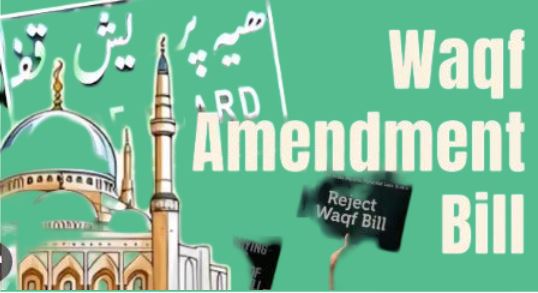The Waqf Amendment Bill 2025 has ignited widespread discussion across India, raising concerns about the governance and control of waqf properties in India. This proposed legislation aims to bring significant reforms to Islamic endowments, increasing government supervision and mandating the inclusion of non-Muslim members in waqf boards. While authorities argue that these measures will enhance waqf property transparency, critics fear they could weaken Muslim religious institutions’ autonomy.
- What is Waqf? The Significance of Islamic Endowments in India
- Key Provisions in the Waqf Amendment Bill 2025
- Why the Government Supports the Waqf Amendment Bill 2025
- Concerns Raised by Muslim Organizations and Opposition Leaders
- Legal and Constitutional Challenges to the Bill
- Public Reactions and Nationwide Protests
- Conclusion: The Future of Waqf Properties in India
What is Waqf? The Significance of Islamic Endowments in India
A waqf property is a permanent donation under Islamic law, set aside for religious or public welfare activities. These assets cannot be sold, transferred, or inherited, ensuring their benefit to society continues indefinitely. India has over 872,000 waqf properties, covering nearly 405,000 hectares and comprising mosques, madrassas, orphanages, and cemeteries. Valued at more than ₹10 lakh crore, waqf assets form one of the largest real estate holdings in India.
Key Provisions in the Waqf Amendment Bill 2025
The Waqf Amendment Bill 2025 proposes several modifications to the Waqf Act 1995, including:
- Inclusion of Non-Muslim Members in Waqf Boards: The bill mandates that non-Muslims be part of state Waqf boards and the Central Waqf Council. While the government claims this will increase transparency in waqf management, Muslim organizations argue it interferes with religious self-governance.
- Increased Government Role in Waqf Disputes: Previously, disputes related to waqf land in India were handled by Waqf Tribunals. The amendment now transfers this responsibility to district collectors, leading to concerns about government overreach and biased decision-making.
- Mandatory Legal Documentation for Waqf Establishment: To prevent fraudulent land claims, the bill introduces a requirement for a waqfnama (legal deed) when creating new waqf properties. While this may help protect assets, it also raises issues for historical waqf lands that lack formal documentation.
- Separate Waqf Boards for Different Muslim Communities: Recognizing the diversity of Islamic practices, the bill allows specific Muslim groups such as Bohra and Agakhani communities to manage their waqf properties separately.
- Enhanced Financial Oversight: The Comptroller and Auditor General (CAG) will now audit waqf board accounts, aiming to prevent corruption in waqf governance.
Why the Government Supports the Waqf Amendment Bill 2025
The government argues that these reforms are necessary for several reasons:
- Preventing Waqf Property Misuse: Many waqf properties in India have been mismanaged or illegally encroached upon. Increased audits aim to prevent this.
- Ensuring Transparency in Waqf Administration: Including non-Muslim members in waqf boards is presented as a step toward better oversight and accountability.
- Faster Resolution of Property Disputes: Assigning dispute resolution to district officials instead of waqf tribunals is expected to speed up legal proceedings.
Concerns Raised by Muslim Organizations and Opposition Leaders
Despite the government’s assurances, the bill has been met with strong opposition from religious leaders and political figures. Their primary objections include:
- Threat to Religious Autonomy: Allowing non-Muslim members on waqf boards is seen as an effort to dilute Muslim control over religious assets.
- Fear of Government Takeover of Waqf Lands: The shift of dispute resolution powers to District Collectors raises concerns that waqf properties could be seized or repurposed.
- Unequal Treatment of Religious Institutions: Unlike Hindu temple trusts or Christian endowments, only Muslim waqf properties are subjected to increased state oversight, sparking debates about religious discrimination in India.
Legal and Constitutional Challenges to the Bill
Experts suggest that the bill could face legal scrutiny in the Supreme Court of India due to its potential constitutional conflicts:
- Violation of Religious Freedom: Article 25 of the Indian Constitution guarantees religious groups the right to manage their affairs independently.
- Possibility of Legal Challenges: The shift of waqf dispute resolution from tribunals to government officials may trigger increased litigation and prolonged court battles.
Public Reactions and Nationwide Protests
The bill has fueled mass protests and political tensions, with major stakeholders voicing their concerns:
- Opposition Parties Reject the Bill: Congress, AIMIM, and other political groups have condemned the amendments as unconstitutional and anti-minority.
- Civil Rights and Human Rights Organizations Protest: Activists fear that the bill could lead to large-scale demonstrations, similar to past protests against CAA and NRC.
Conclusion: The Future of Waqf Properties in India
The Waqf Amendment Bill 2025 is emerging as one of the most controversial policy changes in recent history. While the government promotes it as a reform to enhance waqf transparency and governance, critics argue it poses a serious threat to Muslim religious institutions. The ongoing debate suggests that the bill’s fate will be determined by court rulings, political negotiations, and nationwide public responses.
